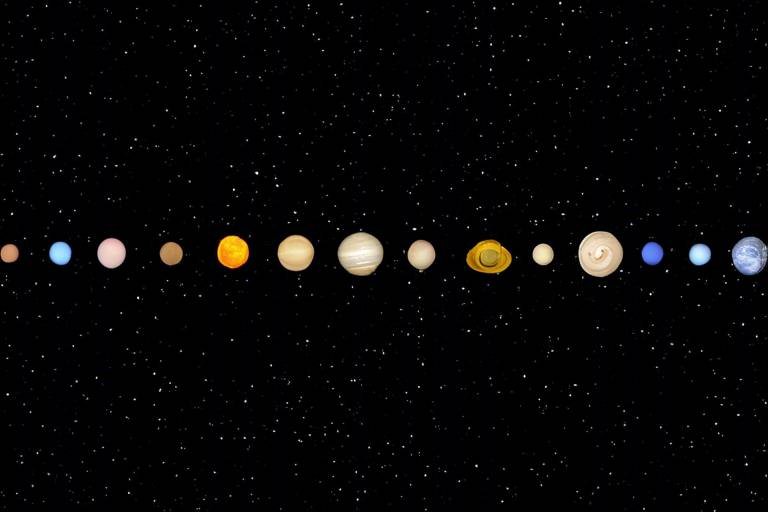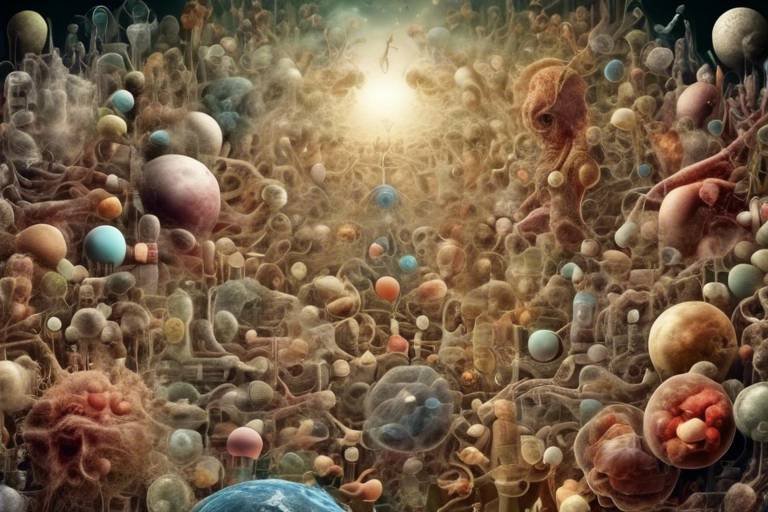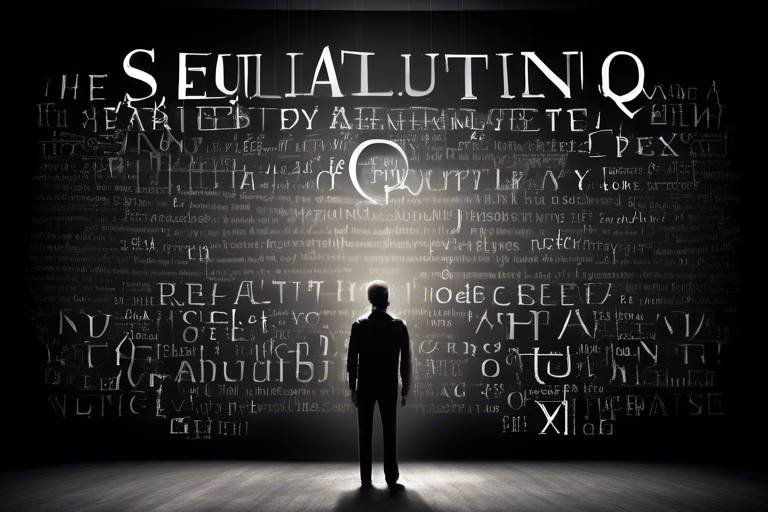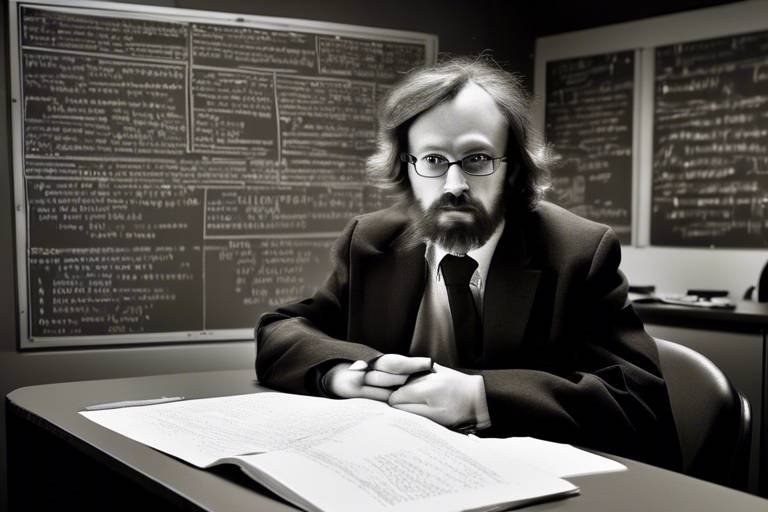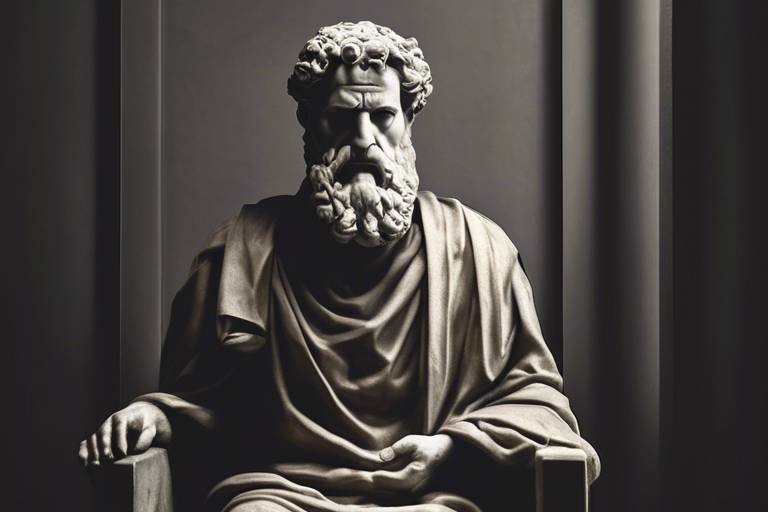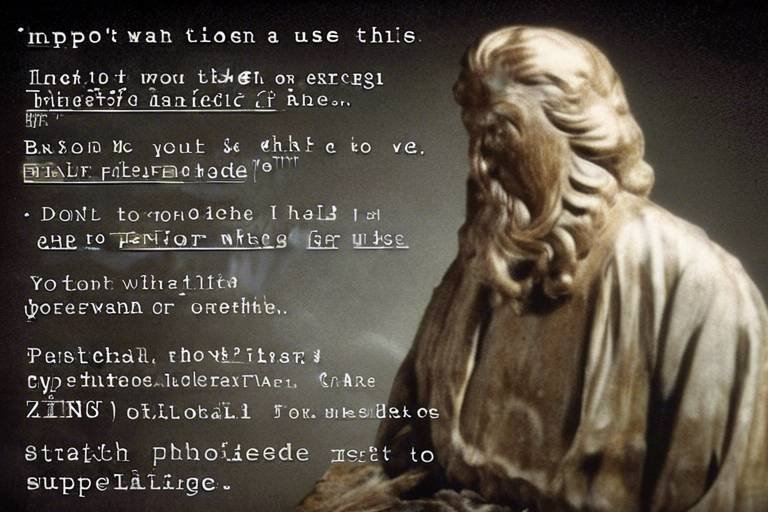Why is a Philosophy of Measurement Crucial in Physics?
Measurement is not just a mechanical process; it is the very backbone of physics, enabling scientists to describe the universe in quantifiable terms. Imagine trying to navigate a vast ocean without a compass or a map. That's how chaotic the world of physics would be without measurement. The philosophy of measurement delves into the underlying principles that guide how we measure, interpret, and understand the physical world. It raises profound questions about the nature of reality, the limits of our knowledge, and the very fabric of scientific inquiry.
At its core, the philosophy of measurement challenges us to think critically about the tools and methods we use. Are our measurements truly reflective of the phenomena we observe? How do we account for the inherent uncertainties that come with any measurement? These questions are not merely academic; they shape the way we conduct experiments, analyze data, and ultimately, draw conclusions about the universe. Without a solid philosophical foundation, our scientific practices risk becoming arbitrary or misguided, leading to potentially flawed interpretations of data.
Moreover, the philosophy of measurement emphasizes the importance of context. For instance, a measurement taken in one setting may not hold the same significance in another. This context is crucial when considering the implications of our findings. It invites us to consider the broader impact of our measurements on scientific discourse and societal understanding. In a world where data drives decision-making, understanding the philosophy behind measurement becomes essential for conveying accurate information and fostering informed public discourse.
As we explore the intricacies of measurement, we must also recognize the historical evolution of measurement practices. From ancient civilizations using rudimentary tools to the sophisticated technologies of today, each step in this journey has been influenced by philosophical ideas. This historical perspective not only enriches our understanding but also highlights the continuous interplay between measurement and philosophical thought.
In summary, the philosophy of measurement is crucial in physics because it informs our understanding of how we quantify the world around us. It encourages a deeper reflection on the nature of scientific inquiry and the significance of our findings. As we continue to advance in our scientific endeavors, embracing this philosophical dimension will ensure that our measurements remain meaningful, accurate, and relevant to the challenges we face.
- What is the philosophy of measurement?
The philosophy of measurement examines the principles and implications of how we measure physical phenomena, addressing questions about accuracy, reliability, and the interpretation of data.
- Why is measurement important in physics?
Measurement is fundamental in physics as it allows scientists to quantify observations, test hypotheses, and develop theories that describe the natural world.
- How does uncertainty affect measurements?
Uncertainty is an inherent aspect of measurement that can influence the validity of scientific conclusions, making it essential to understand and address in experimental design.
- What role does technology play in measurement?
Advancements in technology have revolutionized measurement practices, enhancing precision and accuracy while also introducing new philosophical considerations about data interpretation.
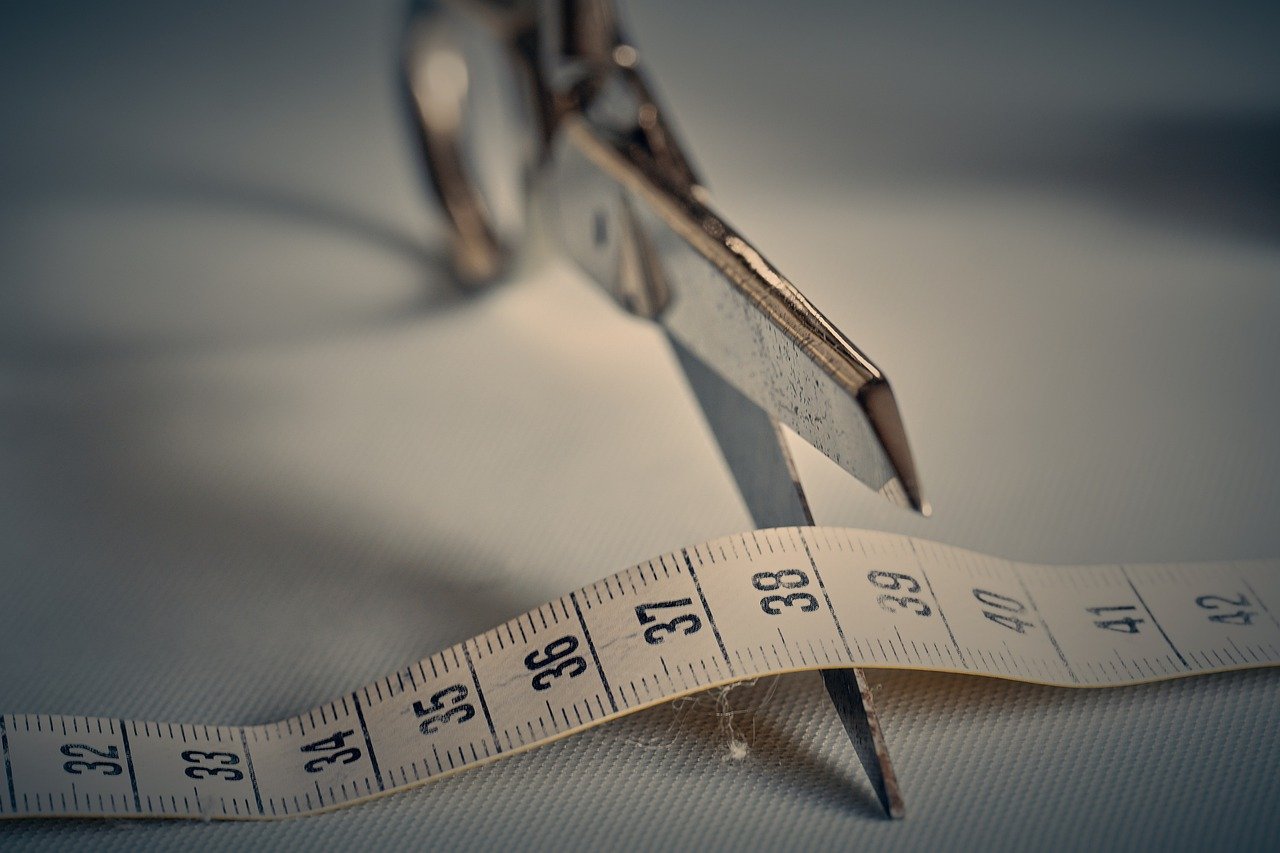
The Role of Measurement in Scientific Inquiry
Measurement is the heartbeat of scientific inquiry; it is the bridge that connects abstract theories to the tangible world around us. Without measurement, science would be akin to sailing a ship without a compass—directionless and adrift. Imagine trying to understand the laws of gravity without being able to measure the force acting on an object or the distance it falls. Measurement provides the essential quantitative data that scientists need to formulate hypotheses, conduct experiments, and draw meaningful conclusions.
At its core, measurement allows us to quantify observations, transforming subjective experiences into objective data. This transformation is crucial, as it enables scientists to communicate their findings clearly and effectively. Think of measurement as a universal language that transcends borders and cultures; when a physicist in Germany reports a measurement in meters, a colleague in Japan can understand it without confusion. This universality is vital for collaboration in the global scientific community.
However, measurement is not just about numbers; it is deeply intertwined with philosophical considerations. The act of measuring involves choices about what to measure, how to measure it, and the tools used in the process. Each of these choices carries philosophical implications that can influence the interpretation of data. For instance, the decision to measure temperature in Celsius versus Fahrenheit may seem trivial, but it reflects broader questions about standardization and the nature of scientific knowledge.
Moreover, the philosophy of measurement invites us to consider the limitations of our measurements. No measurement is perfect; every time we take a measurement, we introduce an element of uncertainty. This inherent uncertainty challenges us to think critically about our findings and their implications. It leads us to ask questions such as:
- What is the degree of precision in our measurements?
- How do we account for errors in our data?
- What does it mean for a measurement to be "accurate"?
As we explore these questions, we begin to appreciate that measurement is not merely a mechanical process but a deeply philosophical one. It shapes our understanding of reality and influences the trajectory of scientific inquiry. By delving into the philosophical underpinnings of measurement, we can gain a clearer understanding of the nature and limits of scientific knowledge.
In summary, the role of measurement in scientific inquiry is multifaceted. It serves as a foundational tool that allows scientists to quantify observations, communicate findings, and engage in collaborative research. Yet, it also raises philosophical questions that challenge our understanding of what it means to know something scientifically. As we continue to explore the intricacies of measurement, we uncover deeper insights into both the physical world and the nature of scientific practice itself.
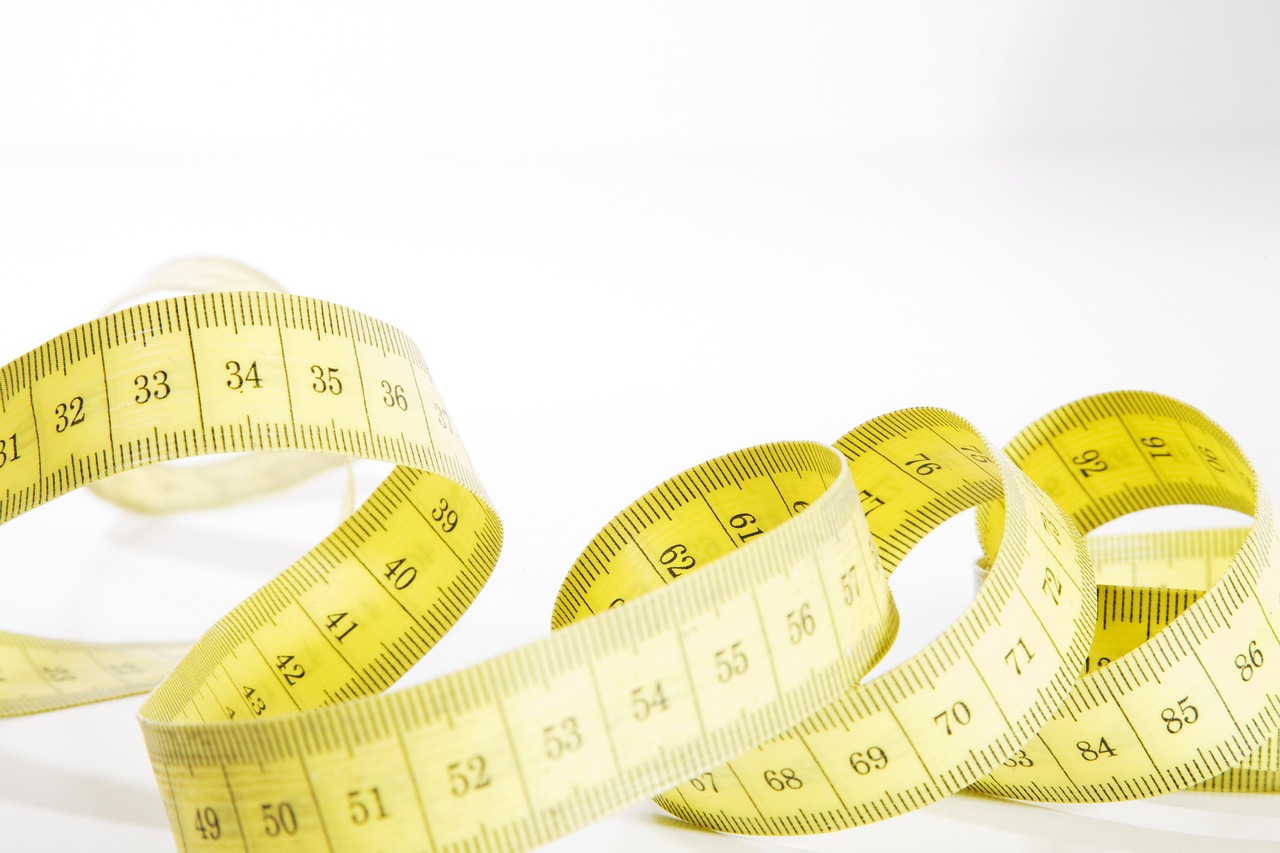
Historical Perspectives on Measurement
When we dive into the , we're essentially peeling back the layers of time to uncover how our understanding of measurement has evolved. It's fascinating to see that measurement is not just a modern scientific tool; it's a concept that has been pivotal since ancient civilizations. From the early days when humans first needed to measure land for agriculture to the sophisticated instruments we use today, the journey of measurement is a rich tapestry woven with philosophical insights and practical necessities.
In ancient Egypt, for instance, the need to measure land for farming led to the development of the cubit, a unit based on the length of the Pharaoh's forearm. This wasn't merely a practical tool; it was a reflection of the society's values and its connection to the divine. The Egyptians believed that their measurements were sanctioned by the gods, showcasing how measurement practices were intertwined with cultural and philosophical beliefs.
Fast forward to the Greeks, who brought a different flavor to measurement. Think of philosophers like Euclid and Archimedes, who didn't just measure for practical purposes; they sought to understand the underlying principles of geometry and physics. Their work laid the groundwork for a more systematic approach to measurement, emphasizing accuracy and precision. It was during this time that the concept of mathematical measurement began to take shape, paving the way for future scientific endeavors.
The Renaissance marked another significant turning point. The introduction of tools like the vernier caliper and the micrometer revolutionized measurement, allowing scientists to achieve unprecedented levels of precision. This era was characterized by a shift towards empiricism, where observation and measurement became central to scientific inquiry. Philosophers like Francis Bacon championed the idea that knowledge should be built on measured observations rather than abstract reasoning alone. This philosophical shift not only influenced measurement practices but also redefined the relationship between science and philosophy.
As we moved into the 18th and 19th centuries, the establishment of standardized measurement systems became crucial. The introduction of the metric system in France was not just a practical solution to the chaos of local measures; it was a bold philosophical statement advocating for a universal language of science. This system, based on decimal divisions, reflected the Enlightenment ideals of reason and order. It enabled scientists from different regions to communicate effectively and collaborate on a global scale, breaking down barriers that previously hindered scientific progress.
To illustrate the evolution of measurement, let's look at a brief timeline of key milestones:
| Period | Key Developments |
|---|---|
| Ancient Egypt | Introduction of the cubit for land measurement |
| Ancient Greece | Development of geometric measurement by Euclid and Archimedes |
| Renaissance | Invention of precision tools like the vernier caliper |
| 18th Century | Establishment of the metric system in France |
In the 20th century, the philosophical implications of measurement took on new dimensions with the advent of quantum mechanics. The very act of measuring at quantum scales raised questions about the nature of reality and observation itself. Philosophers and physicists alike grappled with the implications of measurement, leading to a deeper understanding of both physical phenomena and the limits of measurement itself. This interplay between philosophy and measurement continues to influence modern scientific discourse.
In conclusion, the historical perspectives on measurement reveal a complex relationship between science, philosophy, and culture. Each era contributed unique insights that shaped our current understanding of measurement, emphasizing that it is not merely a technical endeavor but a profound philosophical inquiry. As we continue to advance in science, reflecting on these historical contexts can provide valuable lessons for the future of measurement in physics.
- What is the significance of historical perspectives on measurement? Historical perspectives help us understand how measurement practices have evolved and their philosophical implications in shaping scientific inquiry.
- How did ancient civilizations influence modern measurement? Ancient civilizations laid the groundwork for measurement systems, integrating cultural and philosophical beliefs into their practices.
- What role did the metric system play in scientific collaboration? The metric system established a universal standard, facilitating communication and collaboration among scientists globally.

The Metric System and Its Philosophical Implications
The metric system, often seen as a mere tool for measurement, carries profound philosophical implications that extend far beyond its practical applications. At its core, the adoption of the metric system represents a significant shift towards a more universal and standardized approach to scientific inquiry. This transition was not just about creating a uniform system of measurement; it was a philosophical commitment to the idea that science should be accessible and comprehensible across different cultures and languages.
Historically, the metric system emerged during the French Revolution, a period characterized by a quest for rationality and order amidst chaos. The philosophers of that time, influenced by Enlightenment ideals, sought to create a system that could unify disparate measurement practices. This desire for uniformity reflects a deeper philosophical stance: the belief that knowledge should be coherent and universally applicable. By establishing a common framework, the metric system aimed to dissolve the barriers that traditional measurement systems often imposed, allowing scientists from various backgrounds to collaborate more effectively.
One of the most striking philosophical implications of the metric system is its role in promoting objectivity. By standardizing measurements, scientists can minimize subjective interpretations and biases that often accompany different measurement systems. For instance, consider the difference between measuring a distance in feet versus meters; the latter provides a clearer, more universally understood framework. This shift towards objectivity has profound consequences for the reliability of scientific data and its interpretation. In a world where precision is paramount, the metric system serves as a beacon of clarity.
Moreover, the metric system embodies the philosophical notion of simplicity and elegance. Its decimal-based structure allows for easy conversion and manipulation of units, which is not only practical but also reflects a deeper appreciation for mathematical harmony. This simplicity is akin to the beauty found in nature, where complex phenomena often reveal underlying patterns that can be expressed in straightforward terms. The metric system, therefore, is not just a collection of units; it is a testament to the human desire to find order and meaning in the universe.
As the world becomes increasingly interconnected, the metric system facilitates global scientific collaboration. Researchers from different countries can share data and findings without the confusion of varying measurement units. This universality fosters a sense of community among scientists, reinforcing the idea that knowledge is a collective endeavor. The philosophical implications here are significant: by embracing a common language of measurement, we acknowledge our shared pursuit of understanding the natural world.
In summary, the metric system is much more than a practical tool for measurement; it is a philosophical statement about the nature of scientific inquiry. Its emphasis on standardization, objectivity, simplicity, and universality underscores the importance of coherent communication in the scientific community. As we continue to explore the frontiers of knowledge, the metric system will undoubtedly play a crucial role in shaping our understanding and interpretation of the physical universe.
- What is the metric system? The metric system is a decimal-based system of measurement used globally, which includes units such as meters, liters, and grams.
- Why was the metric system created? It was developed to establish a standardized and universal system of measurement to facilitate scientific communication and collaboration.
- How does the metric system promote objectivity in science? By providing a common framework for measurements, it reduces subjective interpretations and biases that can arise from using different systems.
- What are the philosophical implications of using the metric system? It reflects a commitment to universality, simplicity, and the pursuit of coherent knowledge in scientific inquiry.

Precision vs. Accuracy in Measurement
When diving into the world of physics, it’s crucial to understand the distinction between precision and accuracy. These two terms are often used interchangeably, but they represent different concepts that can significantly influence experimental outcomes and interpretations. Think of accuracy as hitting the bullseye on a dartboard, while precision is about how close your darts are clustered together, regardless of whether they hit the bullseye or not.
In essence, accuracy refers to how close a measured value is to the true or accepted value. For instance, if you’re measuring the temperature of boiling water, the accepted value is 100 degrees Celsius. If your thermometer reads 100 degrees, you are accurate. On the other hand, precision relates to the consistency of your measurements. If you take multiple readings of the boiling water and get 99.8, 99.9, and 100.1 degrees, your measurements are precise because they are close to each other, even if they are not perfectly accurate.
To illustrate this further, let’s consider a simple table:
| Measurement | True Value | Accuracy | Precision |
|---|---|---|---|
| 100.0 °C | 100.0 °C | Accurate & Precise | Accurate & Precise |
| 99.5 °C | 100.0 °C | Not Accurate | Precise |
| 101.0 °C | 100.0 °C | Not Accurate | Precise |
| 98.0 °C | 100.0 °C | Not Accurate | Not Precise |
In the table above, the first measurement is both accurate and precise. The second and third measurements are precise but not accurate, while the last measurement fails on both counts. This differentiation is vital in scientific research, where the goal is to obtain results that are both accurate and precise to ensure reliable conclusions.
Moreover, the implications of precision and accuracy extend beyond mere definitions; they play a pivotal role in experimental design. For example, in a physics experiment, if a scientist is aware that their measuring instruments are precise but not accurate, they might apply a correction factor to adjust their results. Conversely, if they know their instruments are accurate but lack precision, they may need to take multiple measurements and average them to arrive at a reliable conclusion.
In conclusion, understanding the difference between precision and accuracy is not just an academic exercise; it has practical consequences in the world of physics and beyond. Scientists must strive for both to ensure their findings are valid and can be trusted. So, the next time you embark on a measurement task, ask yourself: Are you aiming for precision, accuracy, or both?

The Role of Uncertainty in Measurements
When we talk about measurements in physics, the word "uncertainty" often creeps in, and for good reason. Uncertainty is not just a pesky detail; it’s a fundamental part of the measurement process. Think of it like the fog that sometimes obscures your view when you're trying to see a beautiful landscape. You know there’s something magnificent out there, but the fog makes it hard to appreciate the full picture. In the realm of physics, uncertainty can impact our understanding of data and the conclusions we draw from it.
At its core, uncertainty refers to the doubt that exists regarding the result of a measurement. This doubt can arise from various sources, including limitations in the measuring instruments, the environment in which the measurement is taken, and even the inherent variability of the phenomena being measured. For instance, consider measuring the length of a table with a ruler. If the ruler is worn or if you’re not measuring from the exact starting point, your reading could be off. This is where the philosophical implications of uncertainty come into play, as they compel scientists to reflect on the reliability and validity of their measurements.
Understanding uncertainty is crucial for several reasons:
- Improved Accuracy: By acknowledging uncertainty, scientists can refine their measurements, leading to more accurate results.
- Informed Decision-Making: When interpreting data, knowing the uncertainty allows researchers to make better-informed decisions based on the reliability of their measurements.
- Communication of Results: Clearly expressing the uncertainty in measurements helps convey the confidence level of the results to others, fostering transparency in scientific communication.
To illustrate this concept further, let’s take a look at a simple table that summarizes the different types of uncertainty:
| Type of Uncertainty | Description |
|---|---|
| Systematic Uncertainty | Errors that occur consistently due to flaws in the measurement system or methodology. |
| Random Uncertainty | Variations that arise from unpredictable fluctuations in the measurement process. |
| Statistical Uncertainty | Uncertainty that can be quantified through statistical analysis of repeated measurements. |
Moreover, uncertainty isn't just a nuisance; it can also lead to significant philosophical questions. For example, if a measurement can never be perfectly accurate, what does that say about our understanding of reality? Are we merely grasping at shadows when we attempt to describe the physical world? These questions invite us to consider the limits of human knowledge and the nature of scientific inquiry itself.
In conclusion, embracing uncertainty in measurements is not just about accepting flaws; it’s about recognizing the complexity of the world we study. By understanding and communicating uncertainty, physicists can enhance the credibility of their work and contribute to a more nuanced understanding of the universe. So, the next time you hear about uncertainty in measurements, remember that it’s not just a detail—it’s an essential aspect of the scientific journey.
- What is measurement uncertainty? Measurement uncertainty refers to the doubt that exists regarding the result of a measurement, arising from various sources such as instrument limitations or environmental factors.
- Why is uncertainty important in physics? Uncertainty is crucial because it affects the accuracy and reliability of measurements, influencing scientific conclusions and decisions.
- How can uncertainty be quantified? Uncertainty can be quantified through statistical methods, by analyzing repeated measurements and determining the range of possible values.
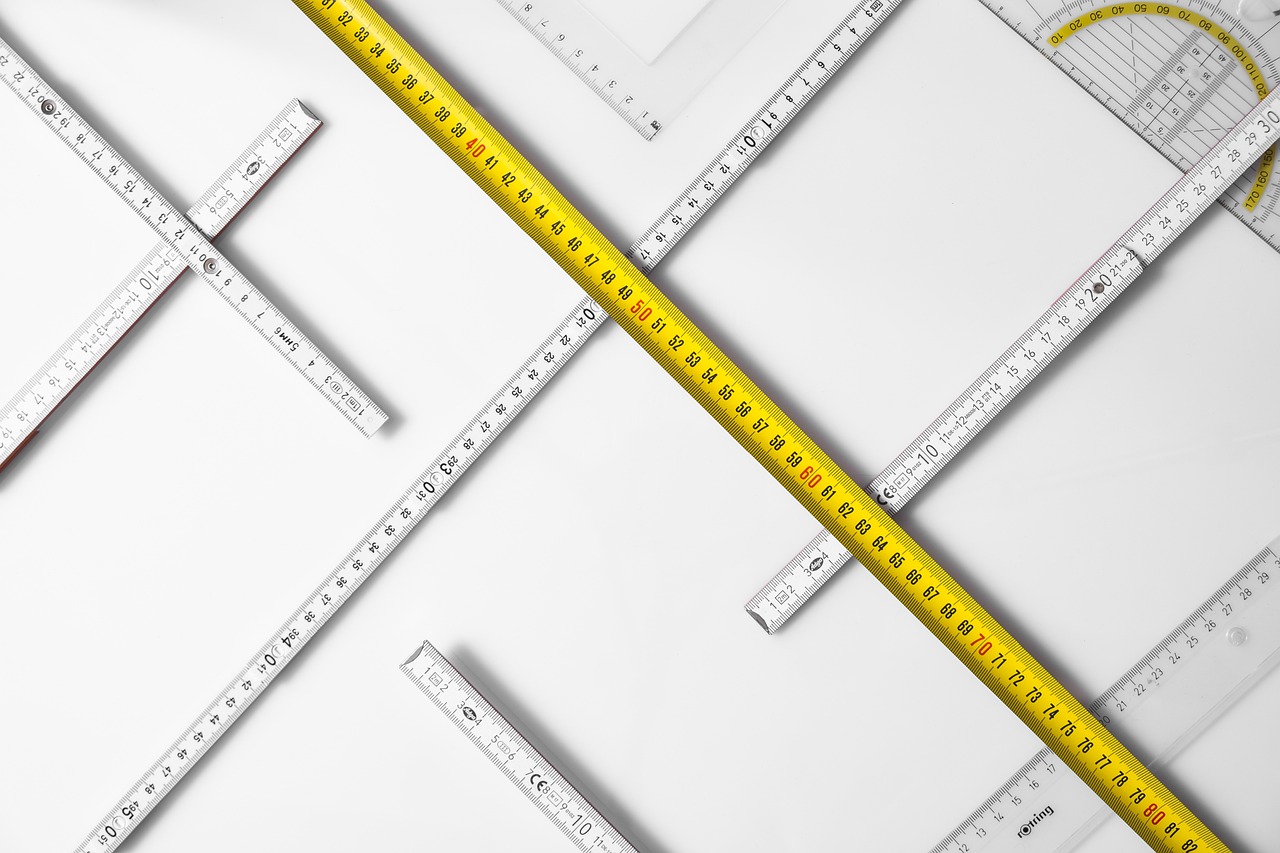
Measurement in Quantum Mechanics
When we dive into the world of quantum mechanics, we encounter a realm that defies our traditional understanding of measurement. Unlike the straightforward measurements we make in classical physics, quantum measurement is wrapped in layers of complexity and philosophical intrigue. Imagine trying to catch a shadow; the very act of measurement can alter what we're trying to observe. This phenomenon is famously illustrated by the observer effect, where the act of measuring a quantum system inevitably influences its state. It's almost as if the universe plays a game of hide and seek, revealing only what it chooses at the moment of observation.
At the core of quantum mechanics lies the concept of superposition, which suggests that particles exist in multiple states simultaneously until measured. This leads us to ponder: what does it mean to measure something that isn't in a definite state? When we measure a quantum particle, we collapse its wave function, forcing it into a specific state. This act of measurement not only alters the particle but also raises profound questions about the nature of reality itself. Are we merely observers in a grand cosmic play, or does our observation actively shape the outcome of events?
Moreover, quantum mechanics introduces the idea of entanglement, where particles become intertwined in such a way that the measurement of one instantly affects the other, regardless of the distance separating them. This bizarre connection challenges our classical intuitions about locality and causality. To illustrate, consider two entangled particles: if we measure the spin of one and find it to be "up," the other will instantly be "down," even if it's light-years away. This phenomenon not only astounds physicists but also fuels philosophical debates about the interconnectedness of all things in the universe.
In light of these complexities, the philosophy of measurement in quantum mechanics becomes not just an academic exercise but a vital inquiry into the very fabric of reality. It forces us to reconsider our definitions of measurement, reality, and knowledge. Are our measurements merely reflections of our interactions with the quantum world, or do they reveal deeper truths? This ongoing dialogue between physics and philosophy is essential for a comprehensive understanding of the quantum realm.
As we explore the implications of quantum measurement, we must also consider its practical applications. Quantum technologies, such as quantum computing and quantum cryptography, rely heavily on our understanding of measurement principles. These advancements promise to revolutionize fields ranging from computing to secure communication, but they also require a robust philosophical framework to navigate the uncertainties and ethical considerations they introduce.
In conclusion, measurement in quantum mechanics is a fascinating intersection of science and philosophy. It challenges our perceptions, reshapes our understanding of reality, and opens doors to new technological frontiers. As we continue to unravel the mysteries of the quantum world, the philosophical implications of measurement will remain a crucial aspect of this journey.
- What is the observer effect in quantum mechanics? The observer effect refers to changes that the act of observation can make on a quantum system, influencing its state.
- How does superposition work? Superposition is the principle that a quantum system can exist in multiple states at once until it is measured, at which point it collapses into one of the possible states.
- What is entanglement? Entanglement is a quantum phenomenon where two particles become linked, such that the state of one instantly influences the state of the other, regardless of the distance between them.
- Why is the philosophy of measurement important? The philosophy of measurement helps us understand the implications of our measurements in quantum mechanics, challenging our notions of reality and knowledge.
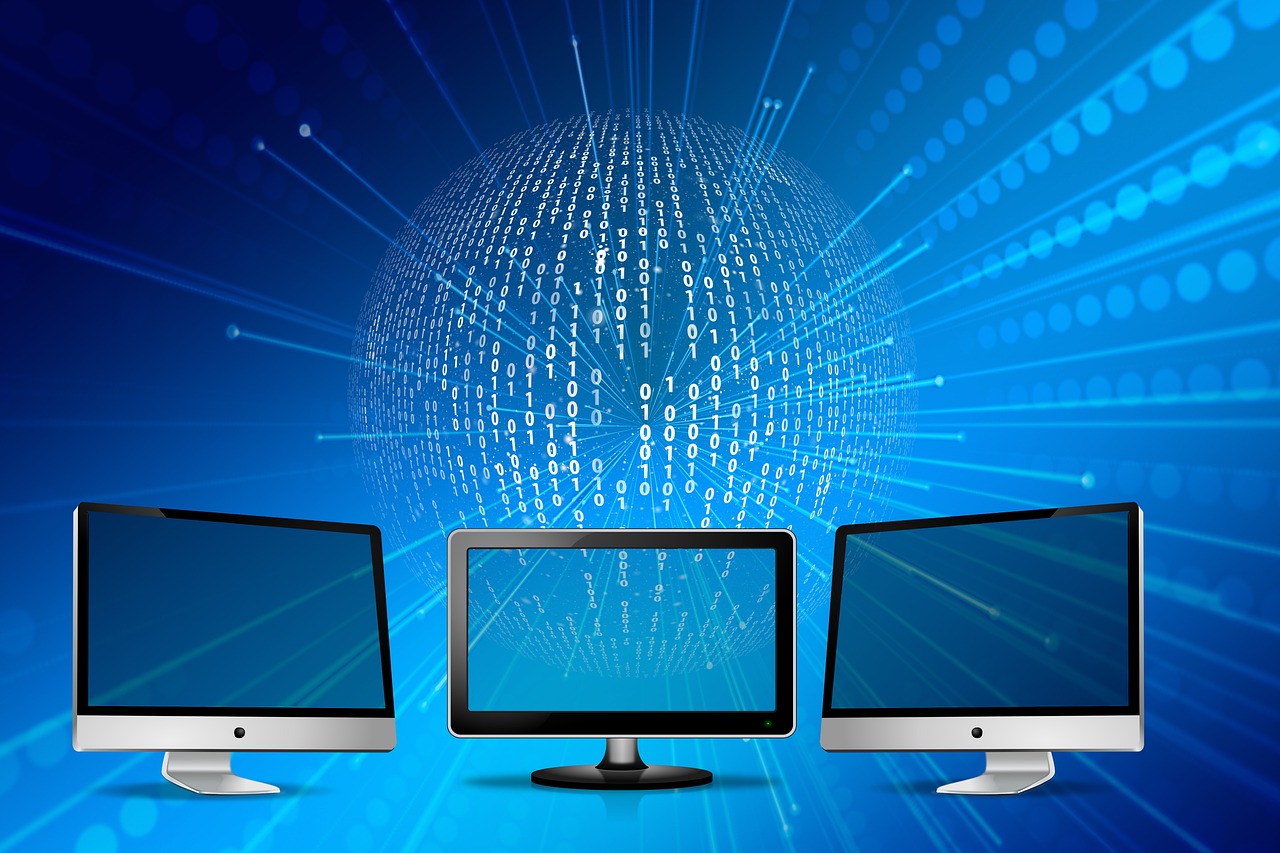
Ethics of Measurement in Science
When we talk about the ethics of measurement in science, we're diving into a realm that is as crucial as it is complex. After all, measurement is not just about numbers and data; it’s about the integrity of the scientific process itself. Imagine a world where scientists manipulate data to fit their hypotheses—how would that affect our trust in science? The ethical implications of how we measure, report, and interpret data can make or break the credibility of scientific inquiry.
At the heart of this ethical discussion lies the responsibility of scientists to ensure that their measurements are accurate and honest. This responsibility extends beyond the laboratory and impacts society at large. For instance, consider a medical study that reports the effectiveness of a new drug. If the measurements are flawed or misrepresented, the consequences could be dire for patients relying on that treatment. Therefore, scientists must adhere to strict ethical guidelines that govern their practices in measurement.
Moreover, the transparency of measurement practices is equally important. Scientists are expected to disclose their methodologies, including any potential biases or limitations in their measurements. This transparency fosters trust and allows other researchers to replicate studies, a fundamental tenet of scientific inquiry. The reproducibility crisis in science has highlighted how failures in measurement and reporting can lead to widespread misinformation. Thus, ethical measurement practices are not just a matter of personal integrity; they are essential for the collective advancement of knowledge.
To better understand the ethical landscape of measurement in science, we can break it down into key principles:
- Integrity: Scientists must conduct their measurements with honesty and rigor, avoiding any manipulation of data.
- Accountability: Researchers should take responsibility for their measurements and the conclusions drawn from them.
- Transparency: Clear documentation and sharing of measurement methods are critical for reproducibility.
- Respect for Subjects: In fields like medicine, ethical measurements must consider the well-being of participants.
As technology evolves, so do the ethical challenges associated with measurement. For example, the rise of big data and machine learning introduces new complexities regarding how measurements are taken and interpreted. With vast amounts of data at our fingertips, the risk of misinterpretation or misuse increases. Scientists must navigate these waters carefully, ensuring that their measurement practices align with ethical standards and that they remain vigilant against biases that could skew results.
In conclusion, the ethics of measurement in science is a multifaceted issue that encompasses accuracy, transparency, integrity, and accountability. As we continue to push the boundaries of scientific inquiry, it’s imperative that we uphold these ethical standards. Only then can we ensure that the measurements we take contribute to a trustworthy and reliable scientific community.
- Why is ethical measurement important in science?
Ethical measurement ensures the integrity and credibility of scientific research, which is crucial for public trust. - What are some common ethical issues related to measurement?
Common issues include data manipulation, lack of transparency, and failure to account for biases. - How can scientists ensure their measurements are ethical?
By adhering to established guidelines, being transparent about methods, and taking responsibility for their data.
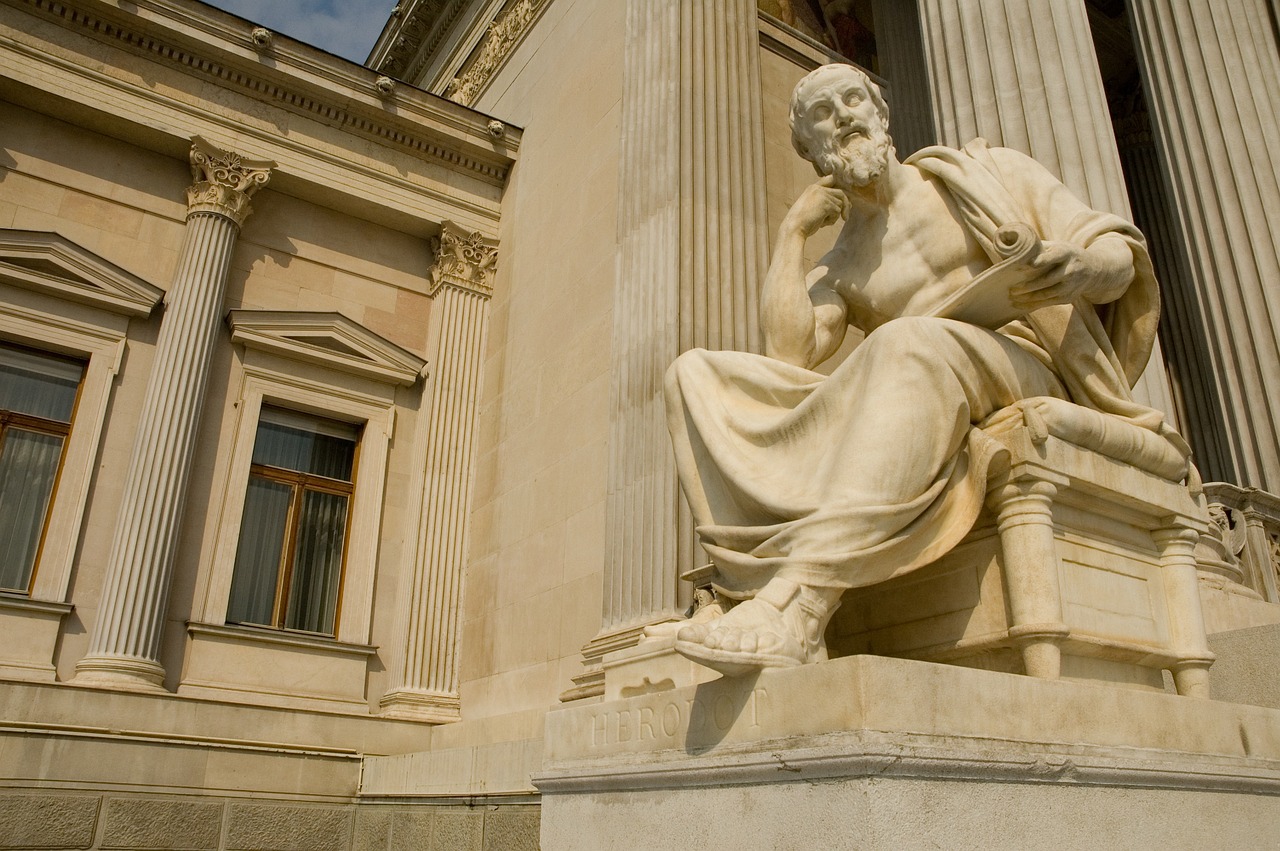
Impact of Technology on Measurement
The realm of measurement in physics has undergone a profound transformation due to technological advancements. Imagine trying to measure the distance to a distant star using a ruler—absurd, right? In the same way, traditional methods of measurement have been revolutionized by technology, allowing scientists to gather data with unprecedented precision and accuracy. From the invention of the telescope to the development of laser interferometry, technology has not only enhanced our ability to measure but also expanded the very boundaries of what we can measure.
One of the most significant impacts of technology on measurement is the capability to collect vast amounts of data rapidly. For instance, modern sensors and instruments can capture data at incredibly high frequencies, enabling physicists to observe phenomena that were once considered too fleeting or ephemeral. This surge in data collection leads to a more nuanced understanding of complex systems. However, it also raises questions about data interpretation—how do we sift through the noise to find meaningful signals?
Moreover, technology has enabled the standardization of measurements across the globe. The introduction of digital measurement tools has facilitated a more uniform approach to data collection, reducing discrepancies that often arose from manual methods. For example, consider the shift from analog to digital thermometers. Digital devices not only provide readings that are easier to interpret but also ensure that measurements are consistent regardless of who is taking them. This standardization is crucial for international collaboration in scientific research, as it ensures that results can be reliably compared and replicated.
However, with great power comes great responsibility. The reliance on advanced technology also brings about ethical considerations. As scientists increasingly depend on automated systems and algorithms for measurement, the potential for errors or biases in data collection and interpretation escalates. This begs the question: how do we ensure that our technological tools are not just accurate but also transparent and accountable? The philosophical implications of these technological advancements challenge us to rethink our approach to measurement in a rapidly evolving scientific landscape.
Furthermore, the integration of artificial intelligence (AI) into measurement practices is a game-changer. AI can analyze vast datasets far beyond human capability, identifying patterns and anomalies that might otherwise go unnoticed. However, this raises another layer of complexity—how do we trust the conclusions drawn by AI? The philosophical discourse surrounding the reliability of machine-generated measurements is a hot topic among physicists and ethicists alike. It’s a bit like asking if we should trust a magician to reveal the secrets behind their tricks—there’s a fine line between wonder and skepticism.
In conclusion, the impact of technology on measurement is profound and multifaceted. It has transformed not only how we measure but also what we understand about the universe. As we continue to innovate, we must also engage in critical reflection on the philosophical implications of these advancements. Are we merely measuring more accurately, or are we redefining the very concepts of measurement and reality? The answers to these questions will shape the future of physics and our understanding of the cosmos.
- How has technology changed measurement in physics? Technology has enhanced precision, speed, and standardization in measurement, allowing for more accurate data collection and analysis.
- What role does AI play in measurement? AI helps analyze large datasets, identifying patterns and anomalies that may not be visible to human researchers.
- Are there ethical concerns with technological advancements in measurement? Yes, reliance on technology raises questions about data integrity, transparency, and accountability in scientific research.
- How does standardization impact scientific collaboration? Standardization ensures that measurements are consistent and comparable across different regions and studies, facilitating global scientific collaboration.

Future Directions in Measurement Philosophy
As we stand on the brink of new scientific frontiers, the philosophy of measurement is poised to evolve in fascinating ways. The rapid advancements in technology, particularly in fields like artificial intelligence, quantum computing, and big data analytics, are reshaping how we think about measurement. These innovations not only enhance our ability to collect data but also challenge traditional notions of accuracy, precision, and even the very nature of what is measurable.
One of the most exciting prospects in the future of measurement philosophy is the integration of interdisciplinary approaches. As physicists collaborate with experts in fields such as philosophy, computer science, and cognitive psychology, we can expect a richer dialogue that challenges existing paradigms. For instance, how do we measure phenomena that are inherently probabilistic, like those found in quantum mechanics? This question invites a philosophical inquiry into the nature of reality itself. Are we merely observing a statistical distribution, or is there a deeper, more objective reality that eludes our measurement techniques?
Moreover, the concept of measurement as a social construct is gaining traction. This perspective suggests that our methods of measurement are not just technical tools but are also influenced by cultural and societal factors. For example, the way we define and quantify concepts like "energy" or "force" can vary significantly across different scientific communities. This raises important questions: Should we strive for universal standards, or is it more beneficial to embrace a plurality of measurement systems that reflect diverse scientific traditions?
In addition, as we delve deeper into the realm of big data, the philosophy of measurement will need to address the implications of data-driven science. The sheer volume of data available today allows for unprecedented levels of analysis, but it also raises concerns about the quality and reliability of measurements. How do we ensure that our measurements reflect true phenomena rather than artifacts of data collection methods? This is where the philosophical debate about the ethics of measurement becomes crucial. Scientists must navigate the fine line between innovation and responsibility, ensuring that their methods do not mislead or misrepresent the data.
Lastly, the future of measurement philosophy may also be influenced by the rise of machine learning and artificial intelligence. As these technologies become more prevalent in experimental design and data analysis, we must consider how they alter our understanding of measurement. Can machines truly comprehend the nuances of measurement, or do they merely replicate human biases? This leads to a broader question about the role of human intuition and interpretation in scientific measurement. Are we at risk of becoming overly reliant on algorithms, potentially sidelining the philosophical aspects that have traditionally guided scientific inquiry?
In conclusion, the future directions in measurement philosophy are not just about refining techniques or developing new technologies. They involve a profound rethinking of our fundamental assumptions about measurement itself. As we embrace the challenges and opportunities ahead, it is essential to foster an ongoing dialogue that includes diverse perspectives, ensuring that our scientific practices remain robust, ethical, and reflective of the complexities of the world we seek to understand.
- What is the significance of measurement in physics?
Measurement is crucial in physics as it provides a way to quantify observations, test hypotheses, and validate theories, ultimately shaping our understanding of the physical universe. - How does the philosophy of measurement influence scientific practices?
The philosophy of measurement helps clarify the nature and limits of scientific knowledge, guiding researchers in their experimental designs and interpretations of data. - What role does uncertainty play in measurements?
Uncertainty is an inherent aspect of measurements that affects scientific conclusions. Understanding it is vital for accurate data interpretation and for making informed decisions based on experimental results. - How is technology changing measurement practices?
Advancements in technology, such as AI and big data, are transforming measurement practices by enhancing data collection and analysis, while also raising new philosophical questions about the nature of measurement itself.
Frequently Asked Questions
- Why is measurement so important in physics?
Measurement is the backbone of physics. It allows scientists to quantify observations, test hypotheses, and ultimately understand the laws that govern our universe. Without accurate measurements, our scientific conclusions would be mere guesses.
- What is the difference between precision and accuracy?
Precision refers to how consistently you can get the same measurement under the same conditions, while accuracy indicates how close a measurement is to the true value. Think of it like throwing darts: you can be precise by hitting the same spot repeatedly, but if that spot is far from the bullseye, you're not accurate.
- How does uncertainty affect measurements?
Uncertainty is an unavoidable part of measurement, reflecting the limits of our knowledge and techniques. It reminds us that all measurements have a degree of error, and understanding this helps scientists interpret results more meaningfully, leading to better scientific discourse.
- What philosophical questions arise from quantum mechanics measurements?
Quantum mechanics challenges our traditional understanding of measurement by suggesting that the act of observing can influence the outcome. This raises profound questions about the nature of reality and whether we can ever truly know a system without altering it.
- What ethical responsibilities do scientists have regarding measurement?
Scientists must ensure that their measurements and data reporting are accurate and honest. Misleading measurements can lead to erroneous conclusions, which may have far-reaching consequences in research and public policy. Integrity in measurement is crucial for the credibility of scientific inquiry.
- How has technology changed measurement practices in physics?
Advancements in technology have revolutionized measurement practices, allowing for more precise and reliable data collection. Tools like lasers, sensors, and advanced computing power have expanded our ability to measure phenomena that were once thought impossible, pushing the boundaries of scientific exploration.
- What does the future hold for the philosophy of measurement?
As science continues to evolve, so will the philosophy of measurement. Future trends may include a deeper understanding of uncertainty, the integration of artificial intelligence in data analysis, and new methodologies that challenge our current paradigms, ultimately shaping the next generation of physicists.




